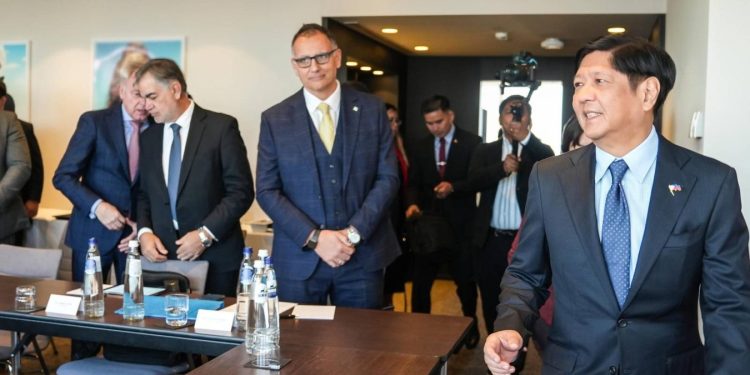On December 13, organisations representing seafarers, shipowners and other maritime employers, met with the Philippines’ President Ferdinand ‘Bongbong’ Marcos Jr, as part of his foreign policy tour in Brussels.
President Marcos ordered a new advisory board to be made up of employers, shipowners and unions and the ILO, to give expert advice on major maritime issues.
In addition, reform was urged of the country’s seafarer claims industry where ambulance-chasing lawyers target seafarers in order to defraud employers.
More specifically, during the meeting, the top of the agenda was the immediate concern of employers and crew that as many as 50,000 seafarers faced being barred from crewing European Union-flagged vessels over qualification issues.
The threat is due to a warning from the bloc’s maritime regulator that the Philippines needed to address unacceptable deficiencies in crew’s education, training and certification. Failure to do so would push out Filipino seafarers, a labour source so critical that one delegate described as ‘too big to fail’.
Delegates were reassured to hear Mr. Marcos pledge that his administration will do “everything” to address these deficiencies identified by the European Commission’s Maritime Safety Agency (EMSA) “to prevent job losses among Filipino seafarers”.
In addition, delegates also urged Mr. Marcos to defend Filipino jobs, by reforming the country’s problematic seafarers claims industry. While intended to secure speedy resolution and compensation for injured and aggrieved crew, the injury claims industry system today sees seafarers’ hardship and goodwill exploited by ambulance-chasing lawyers.
The victimisation of Filipino Seafarers by people or groups to make fraudulent and costly injury claims against their employers, has resulted in companies to look elsewhere for their seafarer workforce.
Seafarers’ unions, including Philippines-based AMOSUP have supported employers’ calls for a crackdown on the unethical practices of the claims industry, who, they say, “capitalise on the hardships and even the demise of seafarers.”
Furthermore, President Marcos revealed to the delegates that he had ordered his Department of Migrant Workers minister, Secretary Susan ‘Toots’ Ople, to establish a maritime advisory committee to address the training issue and consider reforms to the broken seafarers’ claims system.
The International Advisory Committee on Global Maritime Affairs (IACGMA) will draw on experts from both industry and the workforce to support the Philippines’ government. IMEC, ICS, ITF and the International Labor Organization will all be invited to share their expertise.
As a matter of fact, a recent Maritime Just Transition report revealed that as many as 800,000 seafarers will need some form of training or familiarisation by the mid-2030s to handle the fuels, technology and vessels of the future.
Understanding what was needed for the Philippines to make the most of the opportunity decarbonization provides, would be critical to securing an equitable and sustainable future for its seafarers and the industry.






























































